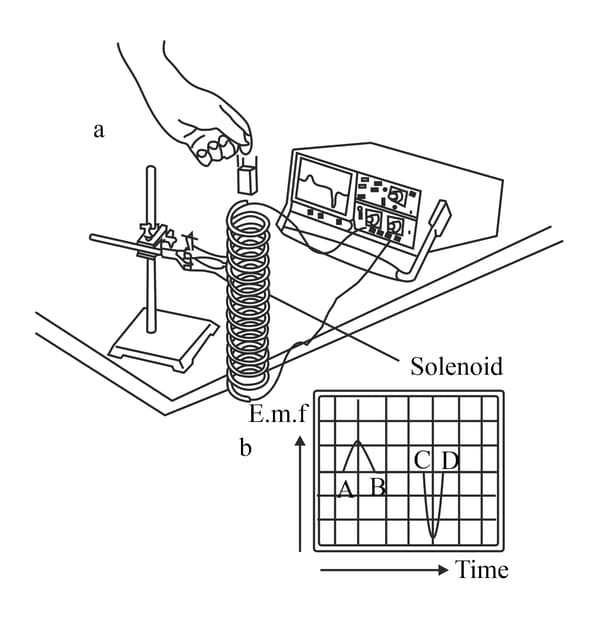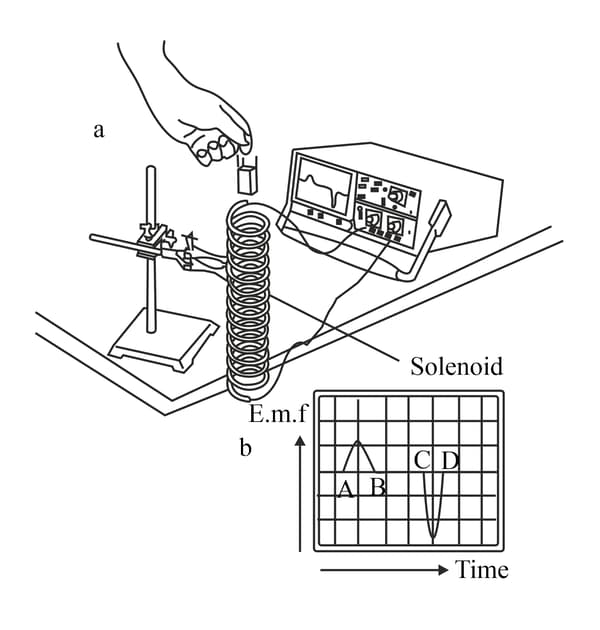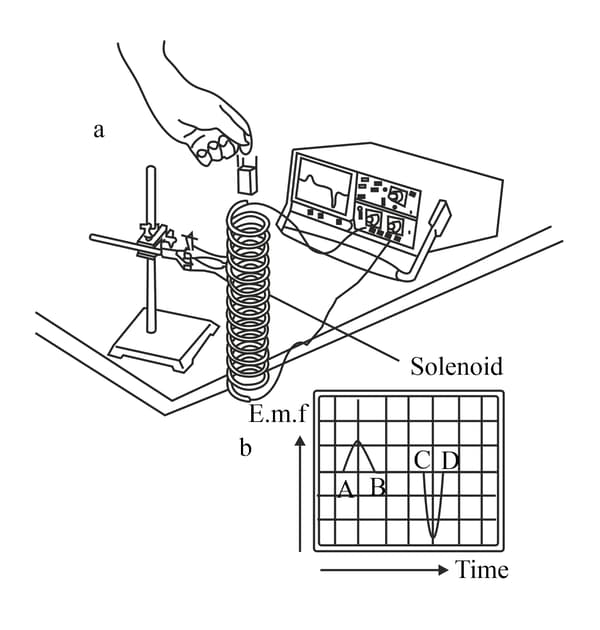David Sang and Graham Jones Solutions for Chapter: Electromagnetic Induction, Exercise 7: Questions
David Sang Physics Solutions for Exercise - David Sang and Graham Jones Solutions for Chapter: Electromagnetic Induction, Exercise 7: Questions
Attempt the practice questions on Chapter 26: Electromagnetic Induction, Exercise 7: Questions with hints and solutions to strengthen your understanding. Physics for Cambridge International AS & A Level Coursebook 3rd Edition Digital Access solutions are prepared by Experienced Embibe Experts.
Questions from David Sang and Graham Jones Solutions for Chapter: Electromagnetic Induction, Exercise 7: Questions with Hints & Solutions
A bar magnet is dropped vertically downwards through a long solenoid, which is connected to an oscilloscope. The oscilloscope trace shows how the e.m.f. induced in the coil varies with time as the magnet accelerates downwards.

A bar magnet falls through a long solenoid. The oscilloscope trace shows how the induced e.m.f. varies with time.
Explain why an e.m.f. is induced in the coil as the magnet enters it (section AB of the trace).
A bar magnet is dropped vertically downwards through a long solenoid, which is connected to an oscilloscope . The oscilloscope trace shows how the e.m.f. induced in the coil varies with time as the magnet accelerates downwards.

A bar magnet falls through a long solenoid.The oscilloscope trace shows how the induced e.m.f. varies with time.
Explain why no is induced while the magnet is entirely inside the coil (section BC).
A bar magnet is dropped vertically downwards through a long solenoid, which is connected to an oscilloscope. The oscilloscope trace shows how the e.m.f. induced in the coil varies with time as the magnet accelerates downwards.

A bar magnet falls through a long solenoid. The oscilloscope trace shows how the induced e.m.f. varies with time.
Explain why section shows a negative trace, why the peak is greater over this section, and why represents a shorter time interval than AB.
You can turn a bicycle dynamo by hand and cause the lamps to light up. Use the idea of Lenz's law to explain why it is easier to turn the dynamo when the lamps are switched off than when they are on.
